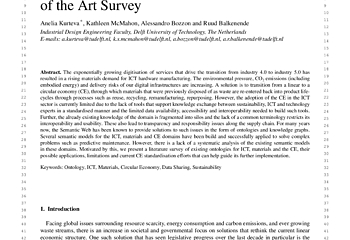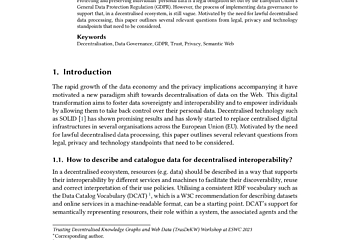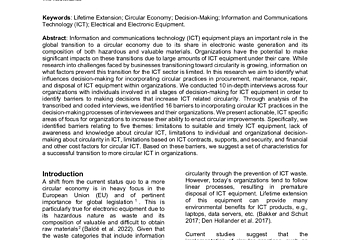Want to know more about this project?
Contact Joppe van Driel.
Double the lifetime of IT products
The aim of the project is to develop and test a new methodology, Circular Resource Planning for IT. It should enable suppliers and users of IT services to manage their hardware in a circular way. In practice this means: double the lifetime of the equipment, slowing down replacement cycles, while running the hardware on maximum energy efficiency.
Love to go circular, but don’t know-how
We focus on the B2B market, which represents the biggest market share in the IT sector (about 55%, and for the data center industry 100%). Those responsible for purchasing, supply, maintenance, and e-waste disposal are eager to implement circular strategies. However, they lack real-time decision support systems to make this step while feeling confident that the IT system remains reliable and fast.
To accelerate circularity for IT, we will build and test decision support modules:
- Circular product passport for IT hardware: stores information about the material composition, measures the performance of the equipment during use and correlates changing performance with usage conditions. The technical challenge lies in the development of a passport that discloses information on three levels – raw materials, products, and IT-system. Circular passports usually focus only on the raw materials used. This works well for buildings, which normally contain only a few different kinds of materials (e.g. concrete, steel, wood). Electronic products, however, contain a great variety of (sub)components integrating exotic materials in very small quantities.
- Resource planner: generates optimization strategies for repair and refurbishment. Data from the circular product passport will form the basis. The resource planner uses AI and IoT to predict the need and timing of maintenance, and determine the remaining technical lifetime of components in the case of refurbishment.
- Resource configurator: this allows IT managers to match the supply and demand of hardware components in a circular way. The resource configurator (a) generates an up-to-date overview of the remaining lifetime and planned upgrades of the hardware assets, and (b) predicts what re-usable hardware components are available where and when to match supply and demand.
To build this system, the project brings together industrial design, computer science, and behavioral science:
- How can we harvest and record information about material composition, environmental impact, hardware design, value retention, and other indicators?
- How can we use IoT and AI to predict the need and timing of maintenance, and the best refurbishment strategies of hardware (parts harvesting, upgrade forecasting)?
- How can we influence the behavior and acceptance of circular IT solutions in the B2B market?
- What opportunities and threats do decision-makers and end-users see with regard to various circular solutions for ICT hardware?
Testing prototypes in real life
The result of the project is, firstly, a prototype of the RePlanIT system that is developed and validated in practical real-life environments in the municipality of Amsterdam and other big IT consumers in the business market. Secondly, with the research into preconditions for trust, behavior, and acceptance of circular IT, the project provides insight into how to include stakeholders so that they actually make circular choices.
Partners
- City of Amsterdam
- TUDelft
- Amsterdam Economic Board
- Rijkswaterstaat
- KPN
- Aliter Networks
- IDEAL&CO
- Green IT Amsterdam
- WCoolIT


